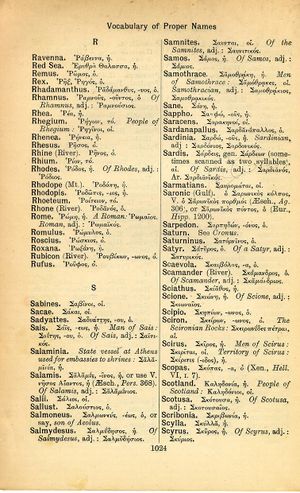Rhodope
νόησε δὲ δῖος Ὀδυσσεὺς σαίνοντάς τε κύνας, περί τε κτύπος ἦλθε ποδοῖιν → godly Odysseus heard the fawning of dogs, and on top of that came the beat of two feet
English > Greek (Woodhouse)
(Mt.) Ῥοδόπη, ἡ.
Latin > English (Lewis & Short)
Rhŏdŏpē: ēs, f., = Ῥοδόπη.
I A mountain range in Thrace, a part of the Hæmus, now Despoto Dagh, Mel. 2, 2, 2; Verg. G. 3, 351; Ov. M. 2, 222; 10, 77.— Acc. to the myth, originally a man, Ov. M. 6, 87 sq.—
II Meton., Thrace, Verg. E. 6, 30; Stat. Th. 12, 181.—Hence,
A Rhŏdŏ-pēĭus, a, um, adj., Rhodopean, for Thracian: arces, Verg. G. 4, 461: regna, i. e. Thrace, Ov. Ib. 347: vates, i. e. Orpheus, id. M. 10, 11; also called heros, id. ib. 10, 50: spicula, Sil. 12, 400: saxa, Claud. III. Cons. Hon. 113: flumina, id. IV. Cons. Hon. 526: conjux, i. e. Progne, wife of the Thracian king Tereus, Stat. Th. 5, 121.—
B Rhŏdŏ-pēus, a, um, adj., Thracian: saxa, Luc. 6, 618.
Latin > French (Gaffiot 2016)
(1) Rhŏdŏpē,¹² ēs, f. (Ῥοδόπη), le Rhodope [montagne de Thrace] : Virg. G. 3, 351

